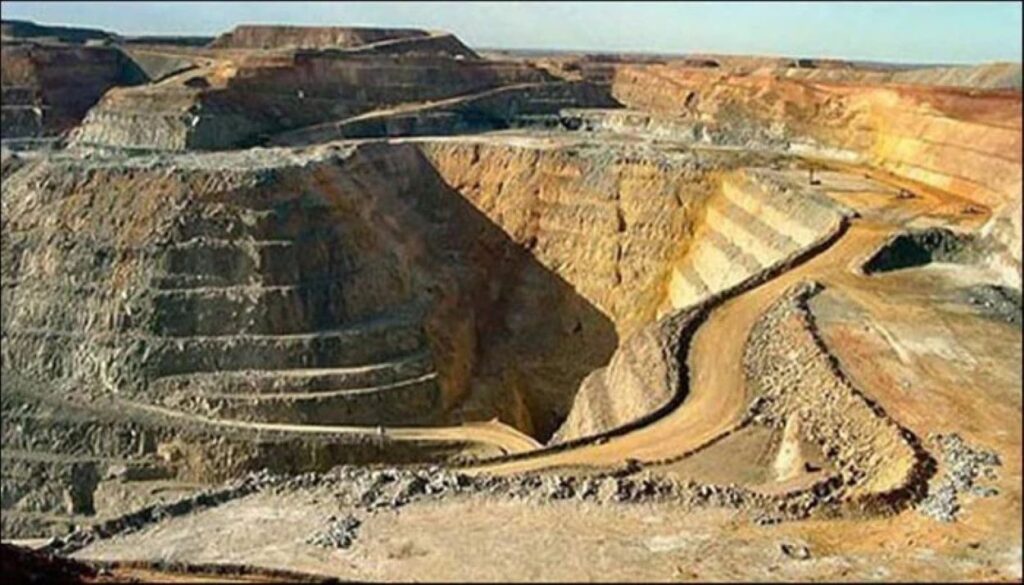
It was a crisp winter morning in Riyadh, as the towering glass structures of the Saudi capital gleamed under the soft sunlight. Inside the grand hall of the Future Minerals Forum, global mining experts, executives, and government officials gathered to discuss the future of mineral resources and energy. Among them was Bandar Alkhorayef, Saudi Arabia’s Minister of Mining, who had a lot to share about his kingdom’s ambitions in the mining sector, particularly in Pakistan.
Alkhorayef had just made a significant announcement that rippled through the mining industry: Saudi Arabia’s state-backed mining giant, Manara Minerals, was eyeing a $100 million investment in Pakistan’s mining infrastructure. The news came as a welcome surprise to many in Pakistan, who had long struggled with underdeveloped infrastructure in their mining sector. The focus was on the vast copper and gold reserves of Reko Diq, a mine regarded as one of the world’s largest underdeveloped mineral deposits.
“We are looking to help Pakistan with infrastructure projects that will make the mining deals more viable,” Alkhorayef explained in an interview with Reuters. “The lack of proper infrastructure has hindered many potential mining ventures here. Through the Saudi Development Fund, we aim to provide financing solutions to make this possible.”
The announcement aligned with Pakistan’s growing optimism regarding foreign investments in its mineral resources, particularly the Reko Diq mine, which had been at the center of a legal and financial dispute for years. The mine, once a dream for many in the country’s mining industry, had the potential to transform the economy.
Just a day earlier, Pakistan’s Petroleum Minister, Musadik Malik, had expressed similar optimism. “I’m very hopeful that in the next quarter or two we will have very big announcements,” Malik had said. He was referring to a series of copper-related developments at Reko Diq and other nearby mines. “So we’re very hopeful that this year, we will make some big announcements.”
Minister Malik’s confidence was not without foundation. Back in May, executives from Manara Minerals had visited Pakistan to explore potential partnerships. The kingdom’s interest in Reko Diq wasn’t just about copper and gold; it was about securing a foothold in one of the most coveted mining regions in the world. For Saudi Arabia, it was part of a broader strategy to diversify its economy away from oil dependency.
Manara Minerals, a joint venture between Ma’aden, Saudi Arabia’s state-controlled mining company, and the Public Investment Fund (PIF) – which manages a staggering $925 billion in assets – was created to take on ambitious international ventures. As part of Saudi Vision 2030, the kingdom’s plan to transition its economy, the partnership with Pakistan was a pivotal step.
“I am confident this partnership will bring prosperity to both countries,” Malik added. “The Saudi investment could revitalize Reko Diq and potentially expand operations to other mineral-rich areas in the region.”
The deal was still in the works, but as the Future Minerals Forum in Riyadh continued, there was a tangible sense of momentum. For Pakistan, this development was a glimmer of hope amidst ongoing economic struggles. The promise of Saudi investment brought not only financial capital but technical expertise that the Pakistani mining sector had long lacked.
In the broader context of mining in the region, another announcement had caught the attention of industry leaders. Saudi Aramco, the oil giant, had begun a promising lithium extraction project in partnership with King Abdullah University for Science and Technology (KAUST). Lithium, a key component in the batteries of electric vehicles, laptops, and smartphones, was quickly becoming one of the world’s most sought-after minerals. Aramco’s interest in this emerging market further showcased the kingdom’s commitment to diversifying its economy beyond oil.
Yet, even as Saudi Arabia and Pakistan were entering an exciting phase of cooperation, challenges remained. The Reko Diq mine, despite its immense potential, was far from commercially viable without substantial investment in infrastructure, both logistical and technological. This was where the Saudi Development Fund’s role became crucial. The kingdom’s deep pockets and financial expertise would be vital in turning the mine into an operational success.
Over the coming months, a flurry of negotiations and agreements between Manara Minerals, the government of Pakistan, and local stakeholders began to take shape. There was talk of a joint venture agreement that would see the kingdom’s mining giant gain access to Reko Diq, as well as other untapped deposits in the region. The deal would include not just extraction operations but also significant upgrades to local infrastructure: roads, power grids, and transportation networks necessary to bring the mine into full production.
In the corridors of power in Islamabad, excitement was palpable. With foreign investment on the horizon, officials began to reimagine Pakistan’s role in the global mining landscape. For decades, the country’s mineral wealth had remained largely untapped, hidden beneath layers of bureaucracy and economic stagnation. The potential for change was immense, and the future of Reko Diq was now intertwined with Saudi Arabia’s ambitious vision for diversification and global partnerships.
As the months rolled by, the first major announcements came through. Manara Minerals confirmed it would be taking a significant stake in the Reko Diq project, a milestone that would open the door to an influx of capital and technology. The copper and gold reserves of Reko Diq were no longer a distant dream – they were becoming a reality.
By 2027, when commercial production of lithium from Aramco’s pilot project was expected to begin, Saudi Arabia and Pakistan were not just collaborators in mining; they were emerging as major players in the global energy transition. The partnership, forged in the corridors of Riyadh, had the potential to reshape the future of mineral extraction in the region and beyond.
For Pakistan, the road ahead seemed brighter than ever. With Saudi investment and technological expertise, the mining sector was on the verge of a new era. And for Saudi Arabia, Reko Diq and its vast reserves represented not just a financial opportunity but a key component of the kingdom’s journey toward a more diversified, sustainable economy. Together, the two nations stood on the precipice of a mining renaissance, one that would shape the future for decades to come.– ER
